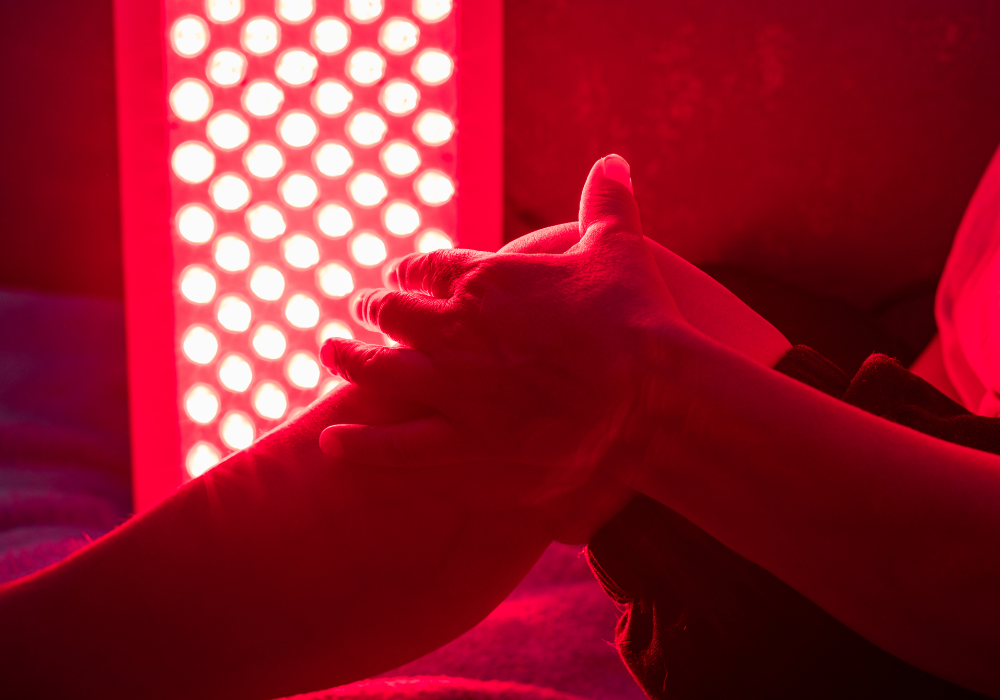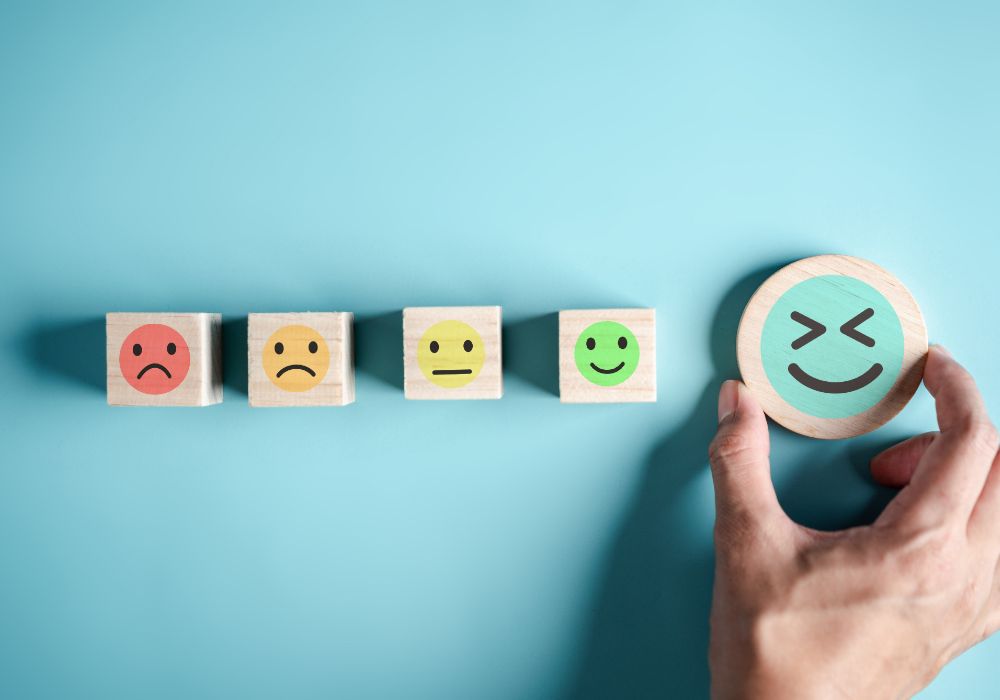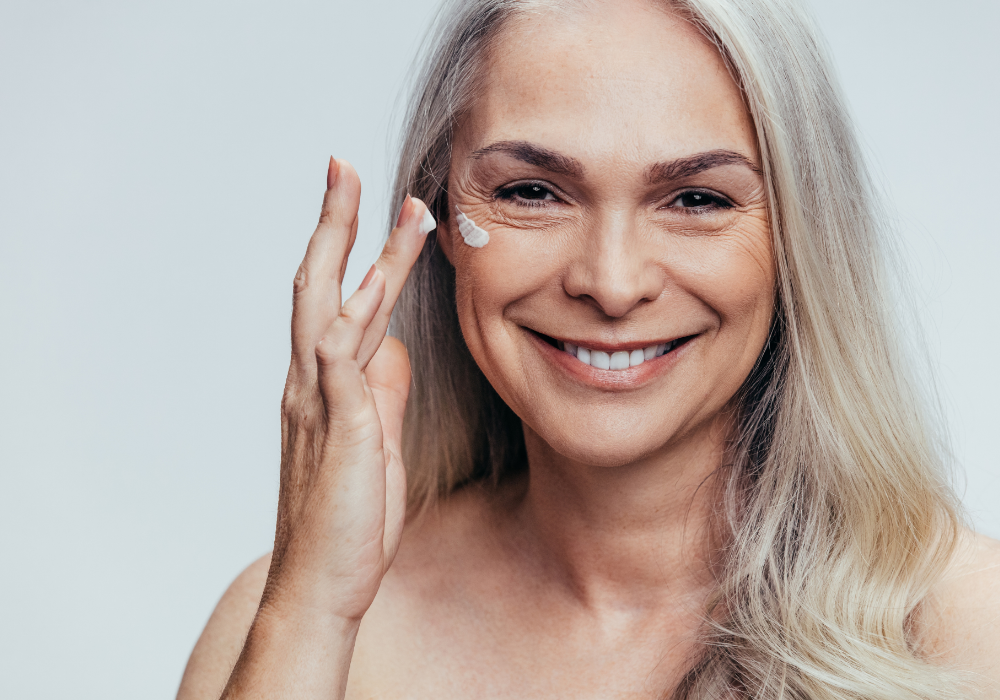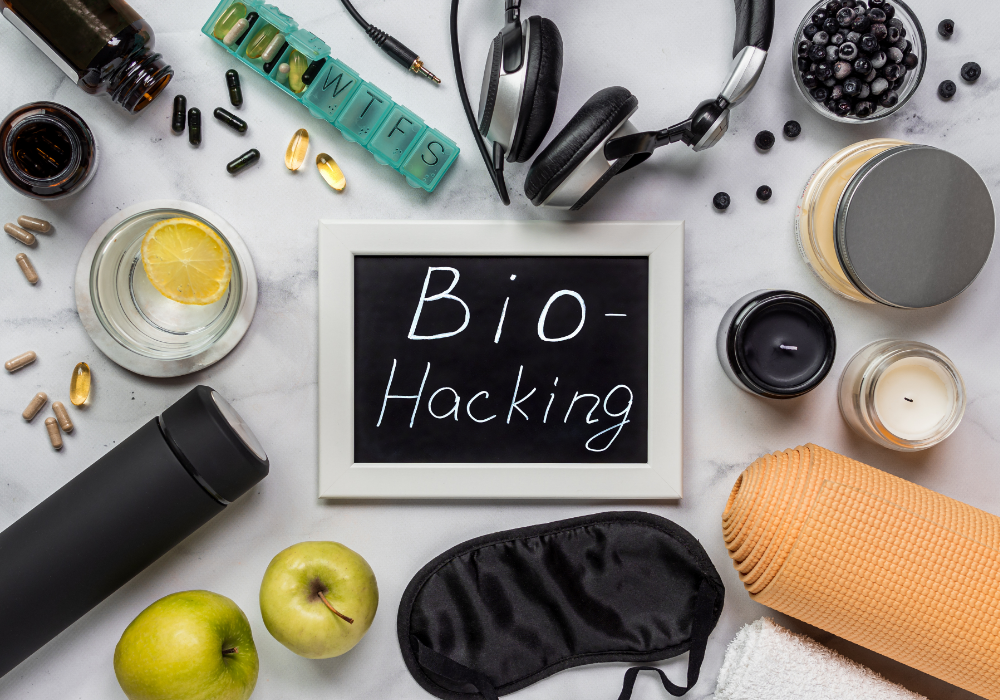Every “upgrade” comes with risks that influencers conveniently leave out.

It sounds seductive, doesn’t it? Unlock hidden energy. Sleep like a superhuman. Reverse aging. Optimize your brain, your gut, your entire existence—all with a few gadgets, pills, and protocols. Biohacking promises shortcuts to peak performance while making you feel like you’re just one supplement away from becoming a next-level version of yourself. But behind the shiny marketing, most of these “hacks” are expensive experiments dressed up as solutions.
The truth is, biohacking isn’t some underground revolution—it’s a booming industry that profits off your insecurities. Many of these so-called upgrades have little science to back them up, come with serious risks, or simply don’t work at all. While influencers brag about cryo chambers and nootropics, the actual benefits are often overblown. You’re not hacking your biology—you’re just throwing money at half-baked promises with very real consequences nobody talks about.
1. Biohacking preys on your fear that your body is secretly failing.

The entire biohacking industry thrives on making you believe you’re not operating at your full potential. It plants the idea that your natural state isn’t good enough—your energy is too low, your brain is too foggy, your metabolism is underperforming—and if you don’t intervene, you’re falling behind. This fear keeps people chasing one hack after another, convinced that they’re constantly broken and in need of repair.
According to a 2024 study published by Elise Li Zheng on arXiv, biohacking tools often exploit what researchers call “responsibilized self” culture—pressuring people to constantly optimize using self-tracking devices and health gadgets, even when there’s little evidence that ongoing optimization is necessary or beneficial. But most people don’t need constant optimization—they need sleep, exercise, real food, and basic healthcare.
Instead, biohackers frame ordinary health habits as outdated and boring. They sell you the idea that health requires constant tinkering with supplements, gadgets, and extreme routines. This manufactured insecurity keeps you locked into a never-ending cycle of expensive fixes for problems you might not even have.
2. Unregulated supplements turn your body into a giant science experiment.

Walk into any biohacker’s kitchen and you’ll find cabinets stuffed with pills, powders, and unpronounceable potions. Many of these supplements promise incredible results: sharper focus, better sleep, extended lifespan. But they exist in a largely unregulated industry, where quality control is spotty and long-term effects are often unknown.
Per writers for Clean Label Project’s 2024–25 report, 47 percent of the 160 most popular protein powders tested exceeded California Proposition 65 limits for heavy metals like lead, cadmium, arsenic, or mercury. Without proper oversight, you have no guarantee what’s actually in those capsules—or how they’ll interact with your body. Some supplements contain harmful contaminants, wildly inaccurate ingredient levels, or compounds that haven’t been properly studied in humans. While influencers casually swallow handfuls of nootropics and adaptogens, your liver is left to sort through the mess.
3. Extreme diets promoted by biohackers often cause more harm than good.

Fasting for 72 hours. Carnivore diets. Bulletproof coffee in place of actual meals. Many biohacking gurus treat food like a problem to be solved rather than nourishment for your body. The more extreme and restrictive the diet, the more attention it gets. But these fads often ignore individual needs, long-term health risks, and basic nutritional science.
As highlighted by Zhongquan Dai for Frontiers in Nutrition, prolonged water-only fasting (5–20 days) commonly led to nutrient deficiencies—including vitamins—and triggered immune system changes and metabolic imbalances, highlighting that extreme fasting isn’t harmless and carries real health risks. Prolonged fasting can lead to nutrient deficiencies, hormone imbalances, and disordered eating patterns. Overly restrictive diets can damage your gut, stress your metabolism, and cause energy crashes. Biohacking diets are rarely sustainable, and when they inevitably fail, the solution offered is always more hacking, not balance.
4. Sleep trackers and wearables can turn rest into a source of anxiety.

Good sleep is crucial, but biohackers have managed to turn even that into a competition. Sleep trackers, rings, and apps promise to “optimize” your rest by measuring every micro-detail: REM cycles, heart rate variability, and sleep efficiency scores. But obsessing over perfect data often leads to sleep anxiety—ironically making your sleep worse.
Instead of listening to your body, you end up chasing numbers, worried that a “bad score” means you’re broken. This constant monitoring can create a hyper-focus that turns natural rest into a nightly performance review. True restorative sleep happens when you’re relaxed, not when you’re anxiously checking your watch at 3 a.m. to see if your sleep app approves. Sometimes the best biohack for sleep is simply not tracking it.
5. Cold plunges and cryotherapy promise benefits they can’t fully deliver.

Plunging into icy water or stepping into a cryotherapy chamber looks tough—and influencers swear it boosts recovery, burns fat, and reduces inflammation. But while short-term cold exposure can offer some benefits, the science behind extreme cold therapies is still thin, especially for the dramatic claims being made.
Many people tolerate cold poorly, and repeated exposure can trigger nerve issues, cardiovascular strain, or even hypothermia if misused. For people with underlying conditions, these “toughness” rituals can be downright dangerous. The biohacking community loves to market cold therapy as proof of mental grit, but the actual research often lags behind the hype. You’re not a Navy SEAL training for arctic survival—you’re likely just shocking your nervous system for likes.
6. Nootropic brain boosters often deliver hype without substance.

The biohacking world is obsessed with nootropics—supplements and drugs marketed to sharpen focus, boost memory, and unlock mental “superpowers.” It sounds like a productivity dream. But most nootropics are poorly studied, lack long-term safety data, and deliver effects so subtle they’re often indistinguishable from placebo.
Many popular brain boosters don’t work at all for some people or come with side effects like jitteriness, headaches, digestive issues, or sleep disturbances. Some nootropics also interact dangerously with medications or underlying health conditions. Instead of cognitive upgrades, many users end up overstimulated and burnt out, constantly tweaking dosages while chasing diminishing returns. Your brain isn’t a machine to hack—it’s an organ that needs rest, nourishment, and balance far more than mystery stacks of unproven pills.
7. Blue light blocking, red light therapy, and light manipulation border on pseudoscience.

Controlling light exposure has become a core obsession for biohackers. Blue light blockers promise to save your sleep. Red light therapy panels claim to reduce inflammation, improve skin, and even enhance athletic recovery. But much of the evidence behind these tools remains limited, preliminary, or wildly overstated by marketers.
Wearing amber glasses indoors at all hours or sitting in front of glowing red panels may offer small benefits, but the claims often exceed what current science supports. Companies capitalize on people desperate for quick fixes, selling $500 light devices with promises that outpace reality.
Some light manipulation can be helpful—but not to the extreme levels biohackers promote. The sun remains free, and for most people, simply getting natural daylight and limiting screen use before bed works better than expensive tech fads.
8. DIY hormone hacking can spiral into dangerous long-term consequences.

Optimizing testosterone. Boosting growth hormone. Tweaking cortisol levels. Biohackers love playing with hormones, often promoting over-the-counter supplements or unregulated clinics offering hormone replacement therapy. But manipulating your body’s delicate endocrine system without medical supervision can backfire in serious ways.
Unnecessary hormone tweaks can cause fertility problems, heart issues, liver damage, and mental health shifts. Even when lab tests suggest “low” or “suboptimal” levels, what’s normal varies widely among individuals. Many biohackers treat minor fluctuations like emergencies, chasing levels that don’t actually reflect better health. Once you start artificially altering hormones, your body may reduce its natural production, trapping you in long-term dependency. The risks of casual hormone hacking are real—and often irreversible.
9. Longevity hacks prey on your fear of aging while offering little real extension.

The dream of extending lifespan fuels much of the biohacking industry. Peptides, IV drips, caloric restriction, and experimental drugs like rapamycin are marketed as paths to eternal youth. But most longevity “hacks” are speculative at best, with human studies either limited or nonexistent.
People spend fortunes chasing theoretical anti-aging solutions while neglecting the basic pillars of long life: diet, movement, sleep, and strong social connection. The more extreme the promise, the shakier the science. Instead of accepting the natural process of aging, biohackers promote the illusion that aging is a disease you can outsmart if you just buy enough supplements. This endless chase for immortality drains bank accounts while offering very little that’s proven, safe, or sustainable.
10. The biohacking industry thrives on selling you problems it invented.

At its core, biohacking sells you the idea that you’re always just slightly broken. You’re not optimized enough. You’re not sleeping enough. Your brain could work faster. Your mitochondria could function better. This constant drumbeat of manufactured inadequacy feeds a multi-billion-dollar industry eager to offer solutions for problems it convinced you existed in the first place.
Most people don’t need complex protocols—they need less stress, better habits, and fewer distractions. But there’s no money in simplicity. Biohacking thrives because it turns wellness into an expensive puzzle only insiders can solve. The more you buy into the myth that your natural state isn’t good enough, the more you’re trapped in an endless cycle of products, promises, and profit.
